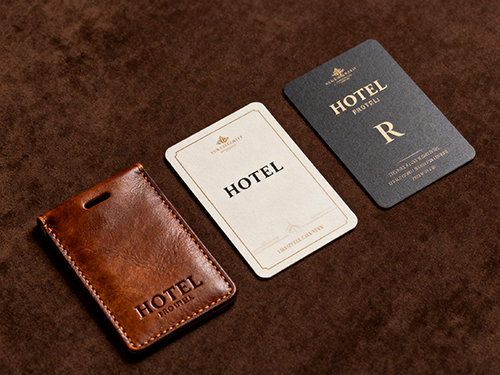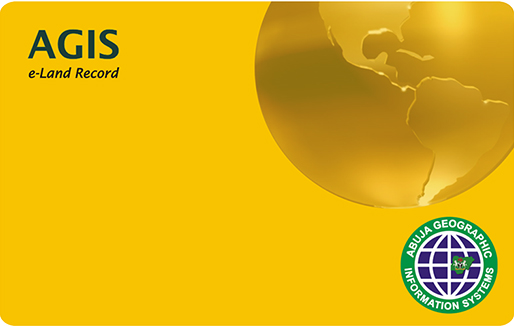Hot News
-
 2026 Year of the Horse Spring Festival Holiday Notice Feb 09,2026
2026 Year of the Horse Spring Festival Holiday Notice Feb 09,2026 -
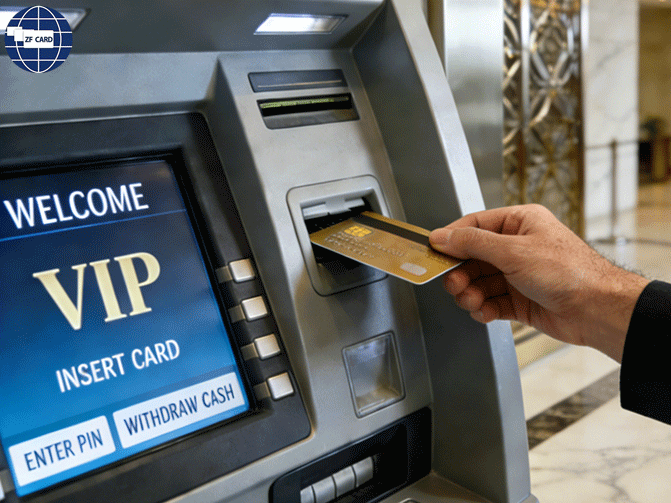 VIP Plastic Smart Card: A secure and flexible intelligent application solution Feb 05,2026
VIP Plastic Smart Card: A secure and flexible intelligent application solution Feb 05,2026 -
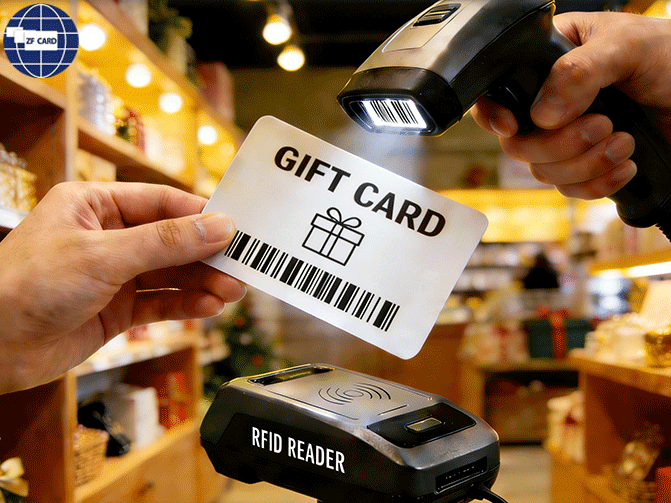 The Synergy of RFID and barcodes: How Dual Authentication Works Feb 04,2026
The Synergy of RFID and barcodes: How Dual Authentication Works Feb 04,2026 -
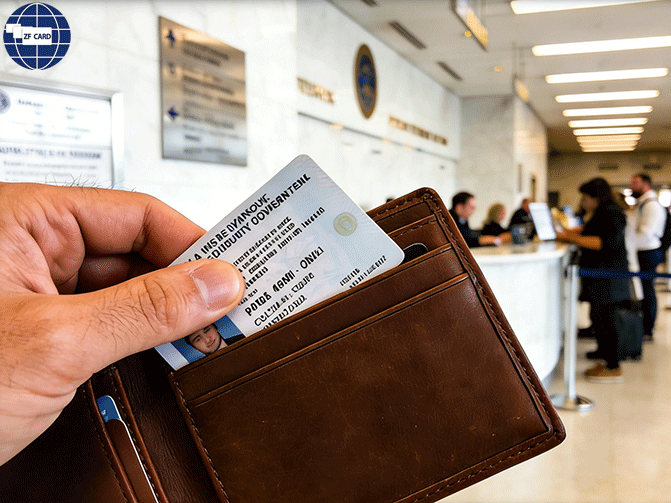 Polycarbonate ID Cards' Durability & Environmental Resistance Jan 29,2026
Polycarbonate ID Cards' Durability & Environmental Resistance Jan 29,2026
What are the three forms of room cards? Understand the secrets of hotel "door-opening keys" in one article!
When staying in a hotel, have you ever paid attention to the "door-opening gestures" of room cards? Some cards need to be inserted into a small slot to work, some can open the door with a light tap against it, and others seem ordinary but hide secrets—these different forms of room cards actually correspond to three mainstream types: door lock magnetic cards, contact IC room cards, and proximity cards. What are their respective characteristics? Why do hotels choose different types? Let's help you understand it all in one article today!
1. What do the three types of room cards look like?
- Door lock magnetic card (magnetic stripe card): a classic and old-fashioned type, which opens the door by "magnetism"
This is one of the earliest forms of room cards. There is a black magnetic stripe on the back of the card (similar to early bank cards), which stores simple door-opening information. When in use, insert the card into the slot of the door lock, and the door lock reads the data from the magnetic stripe through the magnetic head to unlock.
✅ Advantages: Low cost, simple to make, and mature technology;
❌ Disadvantages: Easy to demagnetize (may become invalid if placed with mobile phones or keys), low security (information is easy to copy), and single function (can only store basic door-opening commands).
Applicable scenarios: Economy rooms in some old hotels, or as temporary backup cards (such as cleaning cards).
- Contact IC room card (plug-in chip card): a stable and reliable "upgraded version"
A contact IC room card has several metal contacts on its surface (usually small dots). It needs to be inserted into the card slot of the door lock, and through the direct connection between the contacts and the internal circuit of the door lock, it can transmit more complex data (such as room number, check-in time, and permission level). Its core is an IC chip, which has a much larger storage capacity than a magnetic stripe card, can store more information, and can support more complex logic (such as distinguishing different permissions for guests, cleaning staff, maintenance personnel, etc.).
✅ Advantages: Higher security (chip encryption, not easy to copy), more flexible functions (can store multi-dimensional information), strong stability (physical contact transmission, stable signal);
❌ Disadvantages: Requires plugging and unplugging (the door lock card slot may become loose after long-term use), and is slightly less convenient to use (not as good as the proximity card that opens with a "tap").
Applicable scenarios: Regular guest rooms in mid-to-high-end hotels, scenarios requiring permission classification (such as hotel staff-specific cards, long-term guest cards), and some places with high requirements for data security.
- Proximity card (contactless RFID card): the mainstream nowadays, which opens the door through "induction"
Proximity cards are currently the most common type of room key in hotels. These cards have no slots and no obvious metal contacts; instead, they "communicate wirelessly" with the lock's induction area through the RFID chip inside the card. When you bring the card close to the lock's induction area (usually near the doorknob, within a distance of 3-5 centimeters), the lock can read the chip information and unlock. Common frequencies used by proximity cards are 125KHz (low frequency) and 13.56MHz (high frequency). High-frequency proximity cards (such as M1 cards) are more common, with faster induction speed and better compatibility.
✅ Advantages: Extremely convenient to use (just "tap" to open the door, no need to insert or拔出 (pull out)), smooth experience (especially suitable for guests carrying luggage), and relatively good security (high-frequency chips are encrypted, with strong anti-copying capabilities);
❌ Disadvantages: May be affected by metal doors or strong electromagnetic interference (in rare cases, the induction distance will shorten), and the lock needs to support induction functionality (old-fashioned locks require upgrading).
Applicable scenarios: Standard rooms in most mid-to-high-end hotels, especially chain hotels and boutique B&Bs that focus on guest experience. They are currently the mainstream choice for hotel room keys.
2. why do hotels choose different types of room cards?
In fact, which type of room card a hotel chooses mainly depends on usage needs, door lock equipment, and technical costs:
- Older hotels/temporary needs: Magnetic door lock cards have low costs and are suitable for scenarios with low security requirements and limited budgets (such as short-term rental rooms, temporary event rooms).
- Mid-to-high-end hotels/permission management: Contact IC room cards have high stability and can store more permission information (such as distinguishing between guest and employee permissions), making them suitable for scenarios requiring refined management (such as long-term stays, employee-only access passages).
- Mainstream hotels/guest experience: Contactless cards do not require insertion or removal, allow quick door opening, and can enhance the guest experience (especially for business travelers and family tourists). They are currently the "standard configuration" for hotels to improve service quality.
Some hotels also use a "mix and match" approach - for example, proximity cards are used for ordinary guest rooms (for the convenience of guests), contact IC cards are used for staff passages (for permission grading), and door lock magnetic cards are used for special areas such as warehouses (as low-cost backups).
3. Zhanfeng Smart Cards: All three types of room cards can be customized, achieving stability and intelligence in one step.
Zhanfeng Smart Card has been deeply engaged in the industry for 20 years. Whether it is the classic door lock magnetic card, the stable contact IC room card, or the mainstream proximity card, we can provide full-type customization services:
· Door lock magnetic card: Adopts high-coercivity magnetic stripe to reduce the probability of demagnetization, with clear and wear-resistant printing (suitable for temporary/backup card needs);
· Contact IC room card: Supports multi-permission encrypted storage, the chip is compatible with mainstream door lock systems, and the metal contacts are reinforced (to prevent wear and tear from plugging and unplugging);
· Proximity card: Offers 125KHz/13.56MHz multi-frequency band options, with precise control of the sensing distance (to avoid the embarrassment of "having to get too close to open"), and the high-frequency chip has strong anti-copying ability.
What's more important is that our room cards support personalized designs - from the card surface materials (PVC/matte/metal texture), printing techniques (gold stamping/UV embossing), chip security levels, to the position of the Induction zone, all can be adjusted according to the hotel's needs, taking into account both functionality and brand image!
Conclusion: The small choice of a room card hides the great wisdom of the hotel!
Door lock magnetic cards, contact IC room cards, and proximity cards—these three forms correspond to different technological eras and user needs. From classic to modern, from convenience to security, the essence of a hotel's choice of cards is to provide guests with a more comfortable and secure experience. If you are a hotel manager choosing the right room cards for different room types or scenarios, or a smart door lock manufacturer looking for a reliable card supplier, you might as well try Zhanfeng's multi-type room card customization solutions! Match every need with one card, making door opening simpler and services more considerate.
Contact us: Get free advice on room card selection, let your hotel "nail" the details and win a good reputation!
-
 Design your card for free
Get Free Design
Design your card for free
Get Free Design -
 Free Sample Cards
Get Free Sample
Free Sample Cards
Get Free Sample -
 24 hours online service
Contact Us
24 hours online service
Contact Us-
Office Phone
+86 189-2893-5004
-
E-mail
mailto:denis@zfcard.com
-
Office Phone

 English
English Russian
Russian French
French Spanish
Spanish Portuguese
Portuguese Italian
Italian Arabic
Arabic German
German
